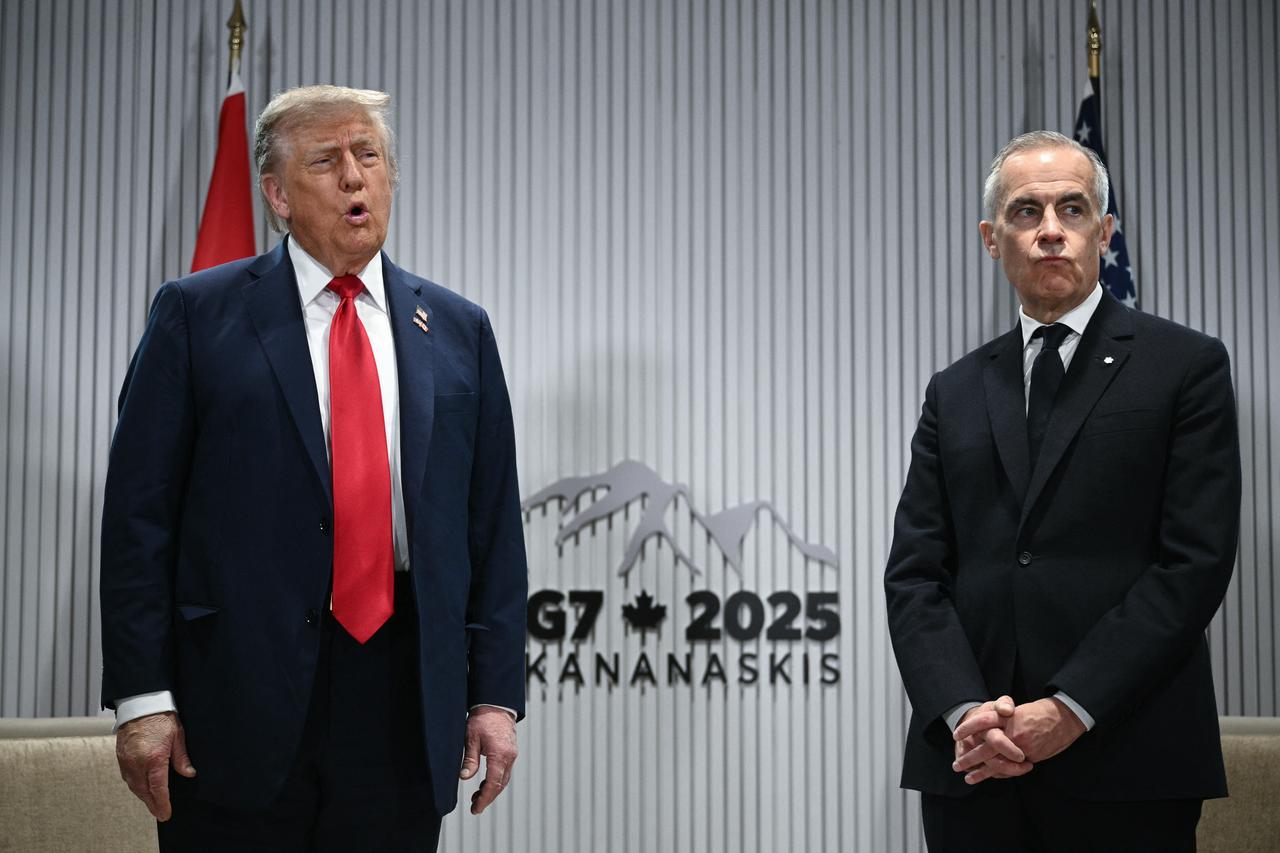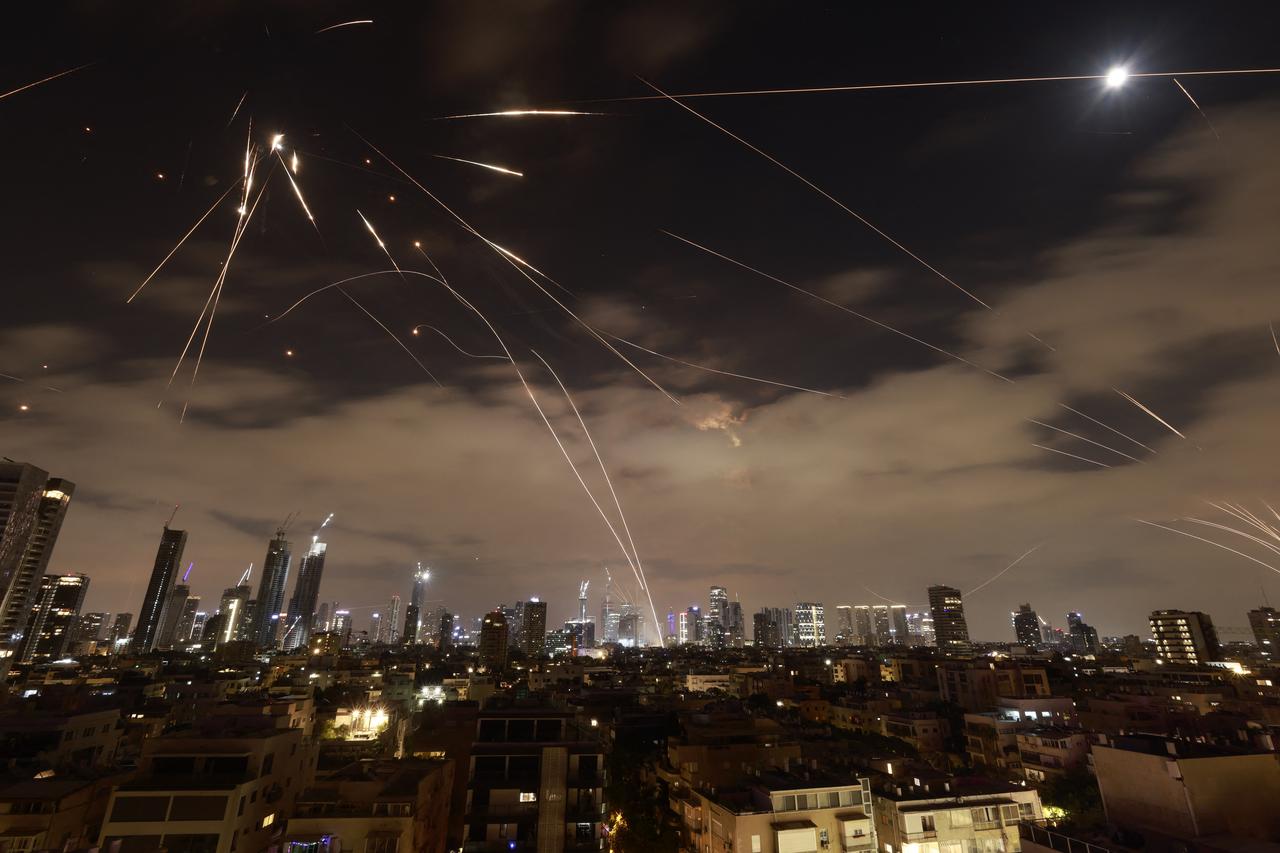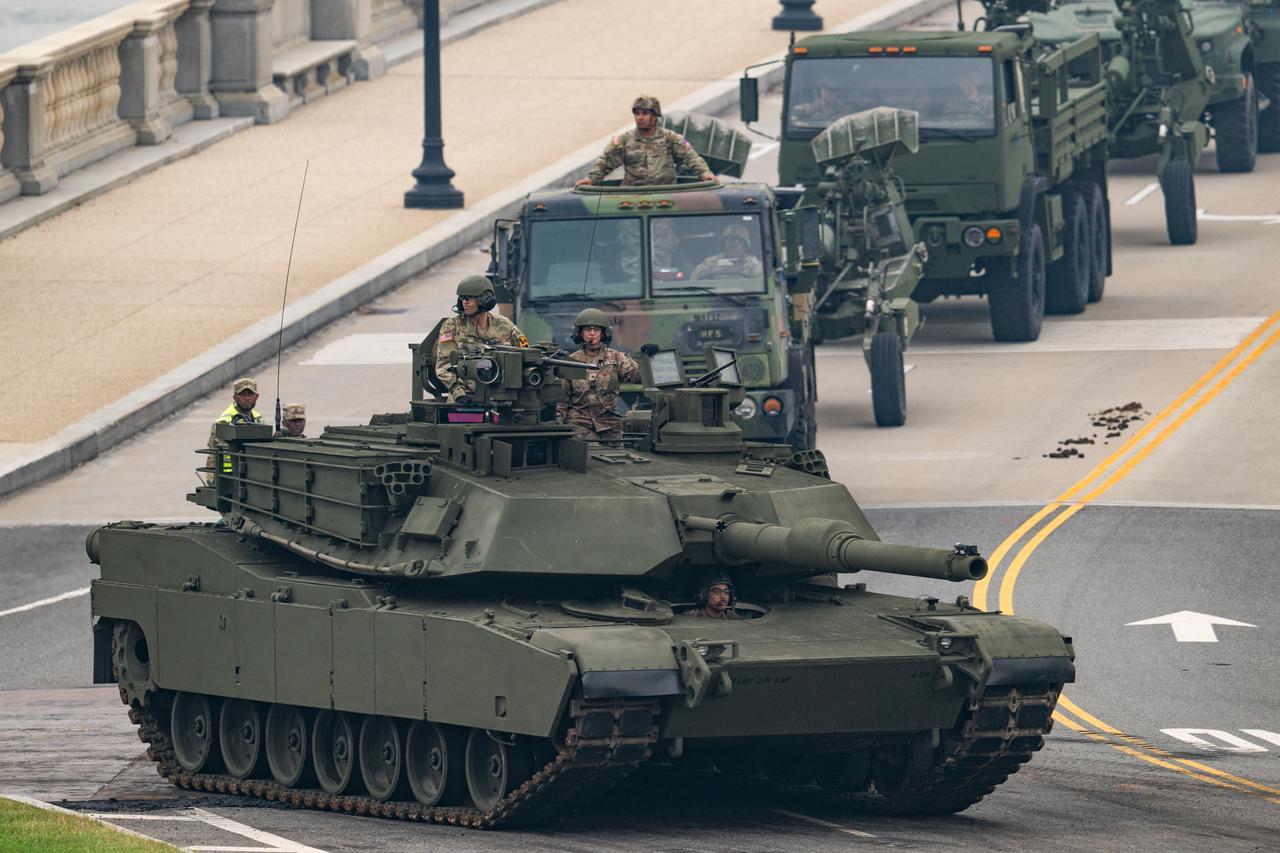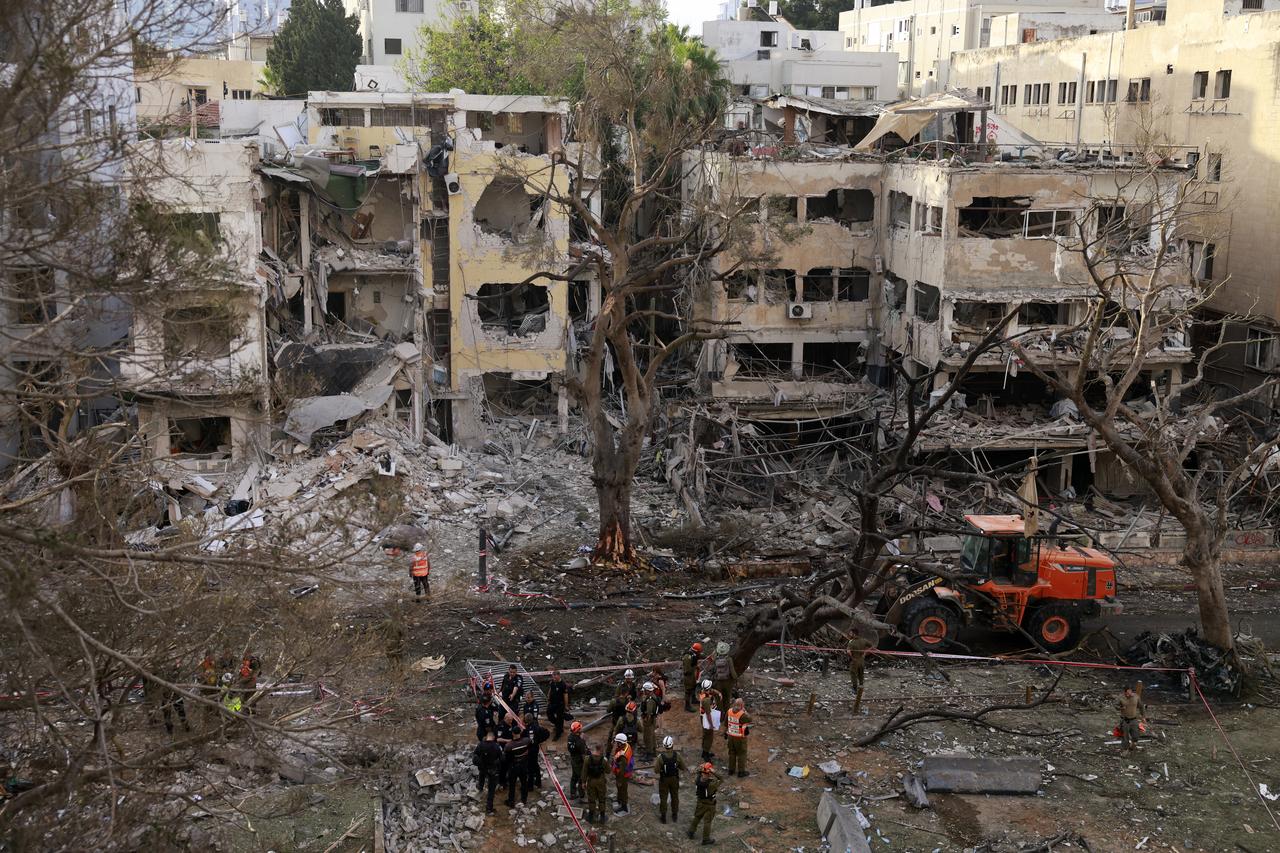
US President Donald Trump said Monday that Iran is on the losing end of ongoing hostilities with Israel and should return to negotiations "immediately" before it's too late.
Speaking to reporters at the Group of Seven leaders summit in Canada, Trump acknowledged the conflict is "painful for both parties" but maintained Iran's disadvantaged position in the escalating confrontation.
"Iran is not winning this war, and they should talk. And they should talk immediately, before it's too late," Trump said at the start of a bilateral meeting with Canadian Prime Minister Mark Carney.
The US president confirmed reports suggesting Iran wants to work toward a resolution, responding "yeah" when asked about Tehran's apparent interest in dialogue. However, he added that Iran "should have done that before."

Regional tensions have escalated dramatically since Friday, when Israel launched coordinated airstrikes on multiple sites across Iran, including military and nuclear facilities.
Tehran responded with retaliatory strikes, marking the fourth consecutive day of exchanges between the two nations.
Israeli authorities reported at least 24 people killed and hundreds injured in Iranian missile attacks since Friday. Iran, for its part, said at least 224 people have been killed and over 1,000 others wounded in the Israeli assault.

When asked about the possibility of increased US military involvement in the hostilities, Trump declined to elaborate, stating: "I don't want to talk about that."
The president reaffirmed America's longstanding support for Israel, telling reporters: "We've always supported Israel. We have, for a long period of time, strongly, and Israel is doing very well right now."

The Wall Street Journal reported Monday that Tehran is signaling its willingness to de-escalate hostilities with Israel and resume nuclear talks with the US, provided Washington doesn't join Israeli attacks. The report cited unnamed Middle Eastern and European officials.
A similar Reuters report indicated Iran conveyed this message through Qatar, Saudi Arabia and Oman, suggesting diplomatic channels remain active despite the ongoing military exchanges.
The US Department of State on Monday updated its travel advisory for Israel, the occupied West Bank, and Gaza, warning Americans not to travel to the region due to heightened security risks.
The advisory includes the authorized departure of family members of US government employees and some non-emergency personnel from the affected areas.
"Do not travel to Israel due to armed conflict, terrorism, and civil unrest," the State Department said, issuing similar warnings for the occupied West Bank and Gaza, citing ongoing "terrorism and civil unrest."
The advisory specifically urged Americans to avoid northern Israel within 4 kilometers (2.5 miles) of the Lebanese and Syrian borders due to "continued military presence and activity."
"The security situation in Israel, including Tel Aviv and Jerusalem, is unpredictable, and U.S. citizens are reminded to remain vigilant and take appropriate steps to increase their security awareness," the State Department added.
The travel advisory for all mentioned regions remains at Level 4: Do Not Travel, the highest warning level issued by the US government.

Oil prices fell more than $2 per barrel Monday following reports of Iran's interest in ending hostilities with Israel, easing market fears about potential disruptions to crude supplies from the region.
The price drop reflected investor optimism about a possible truce that could stabilize energy markets amid ongoing geopolitical tensions in the Middle East.